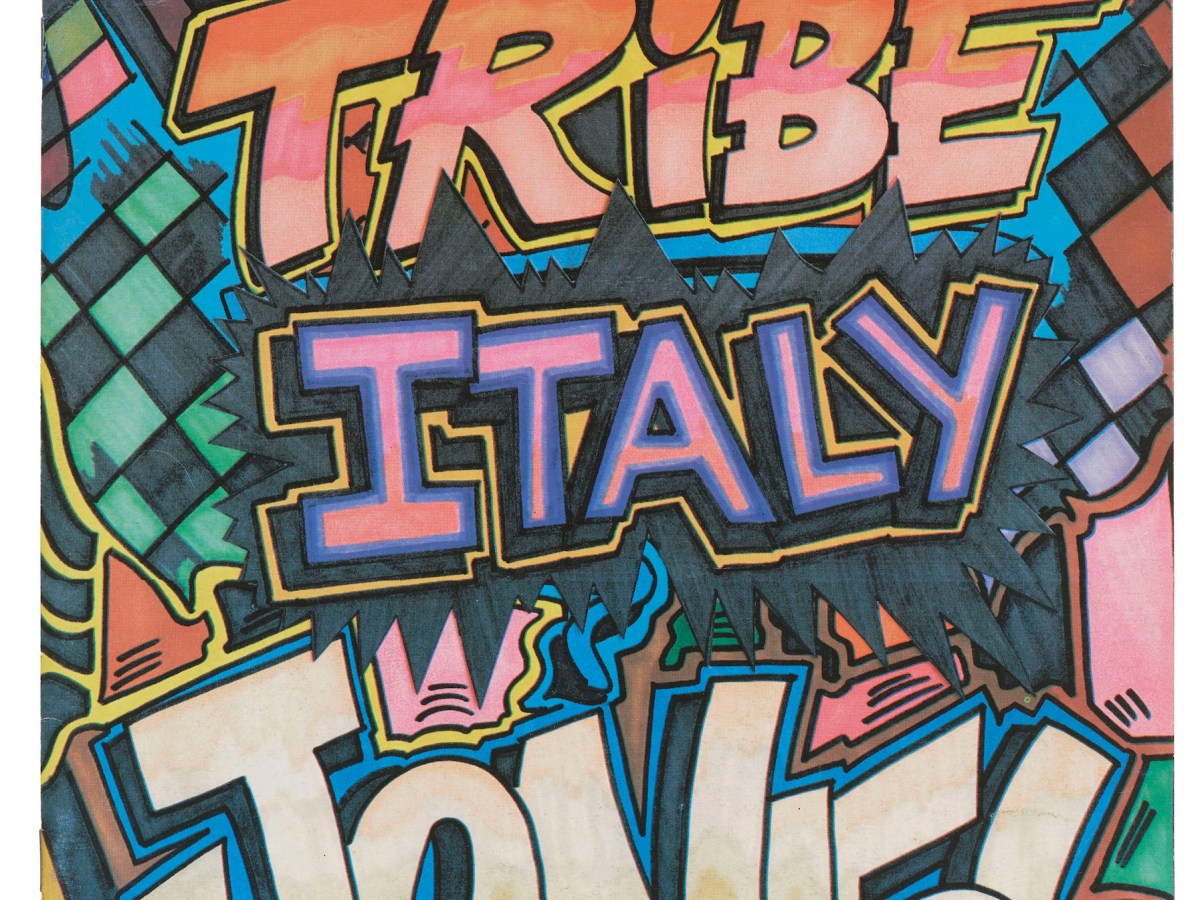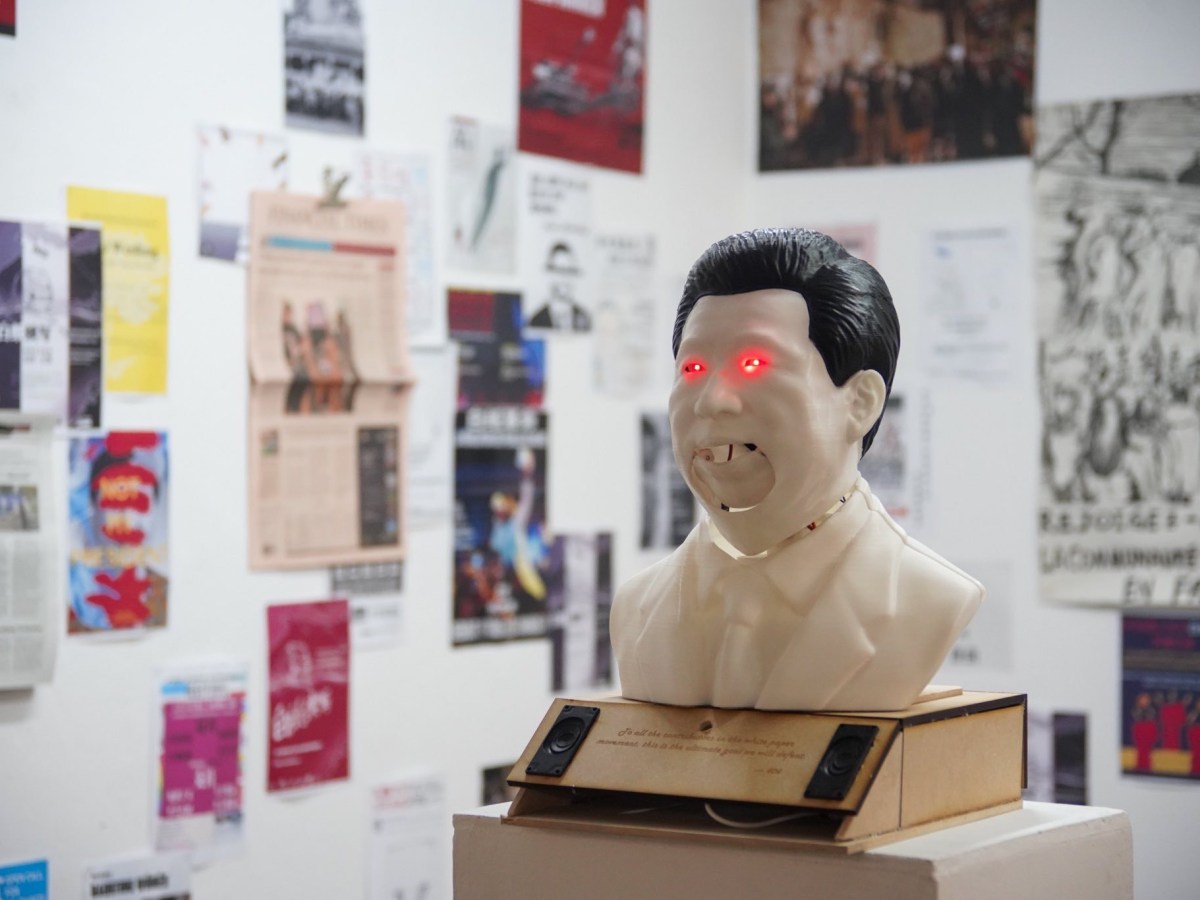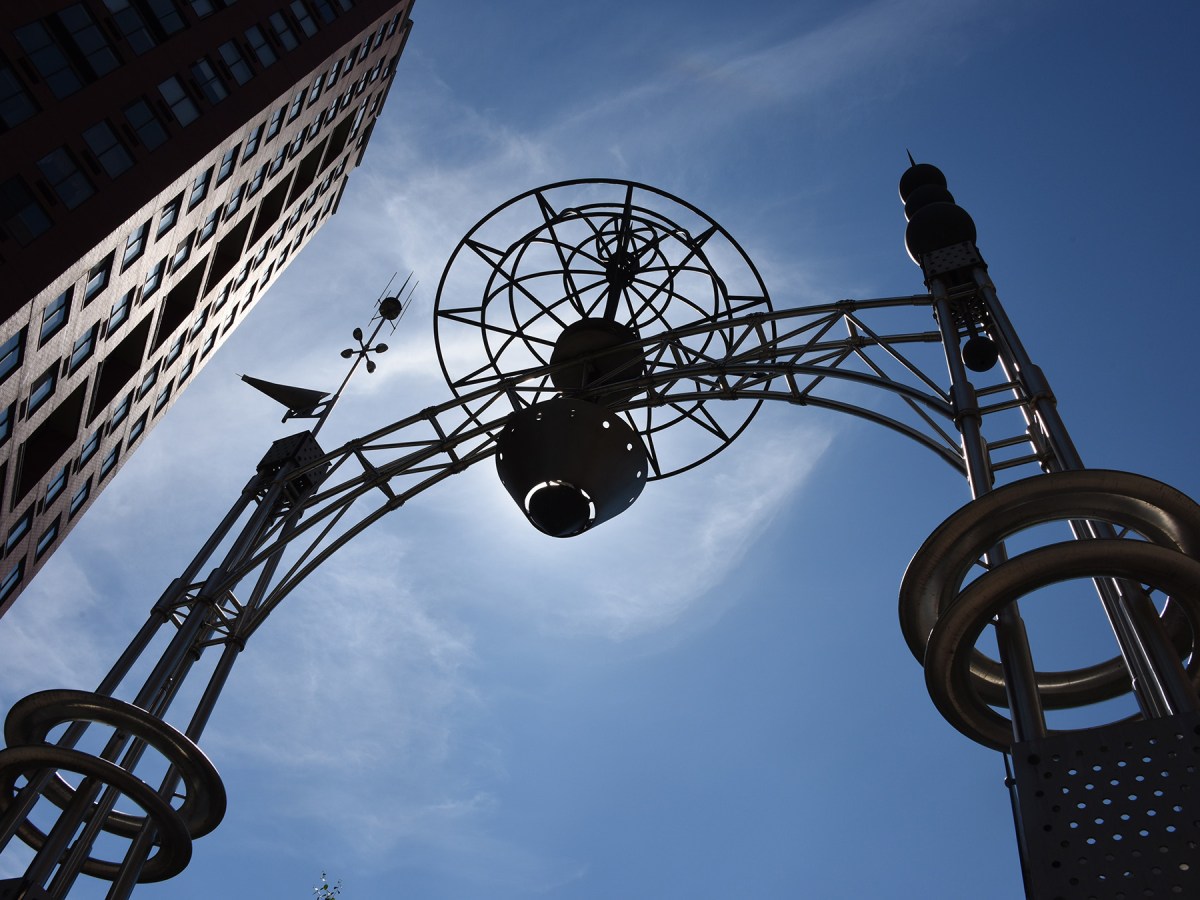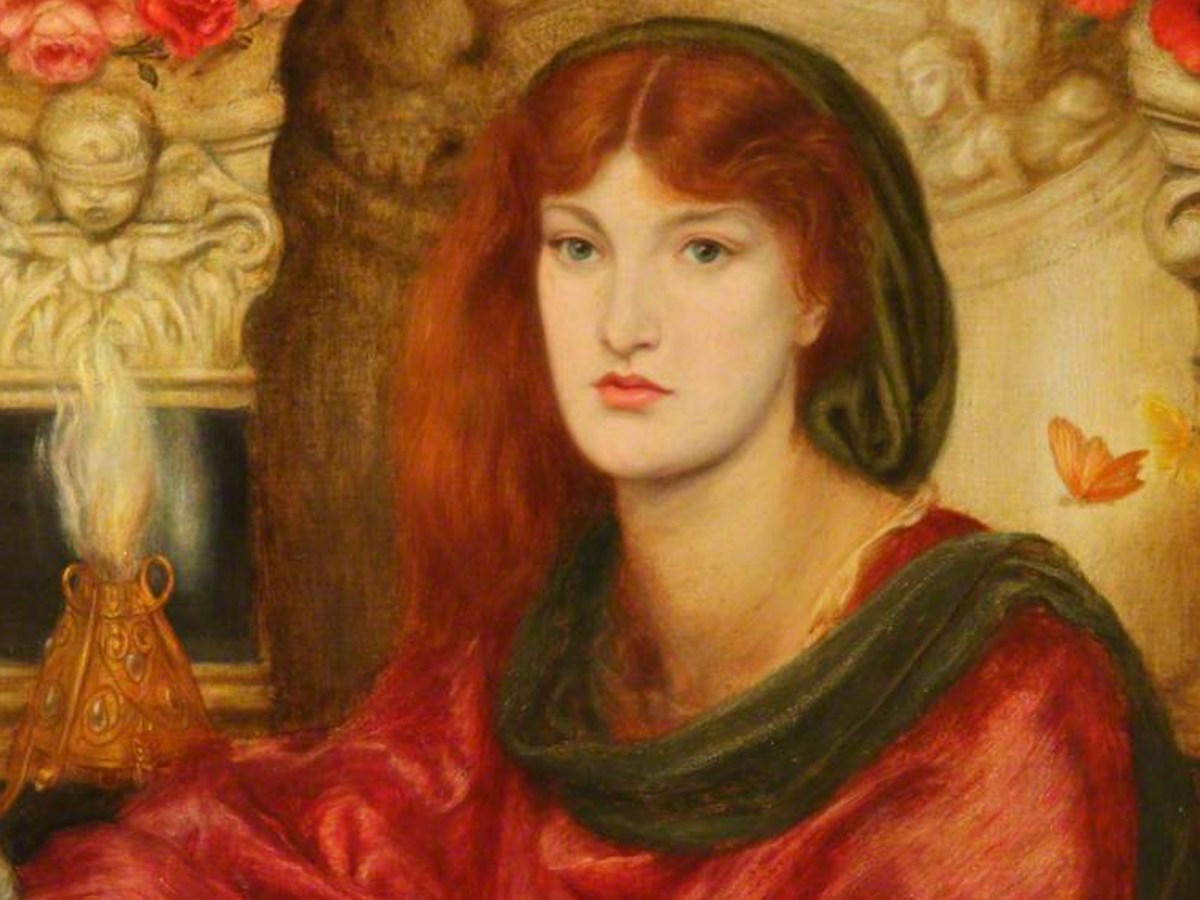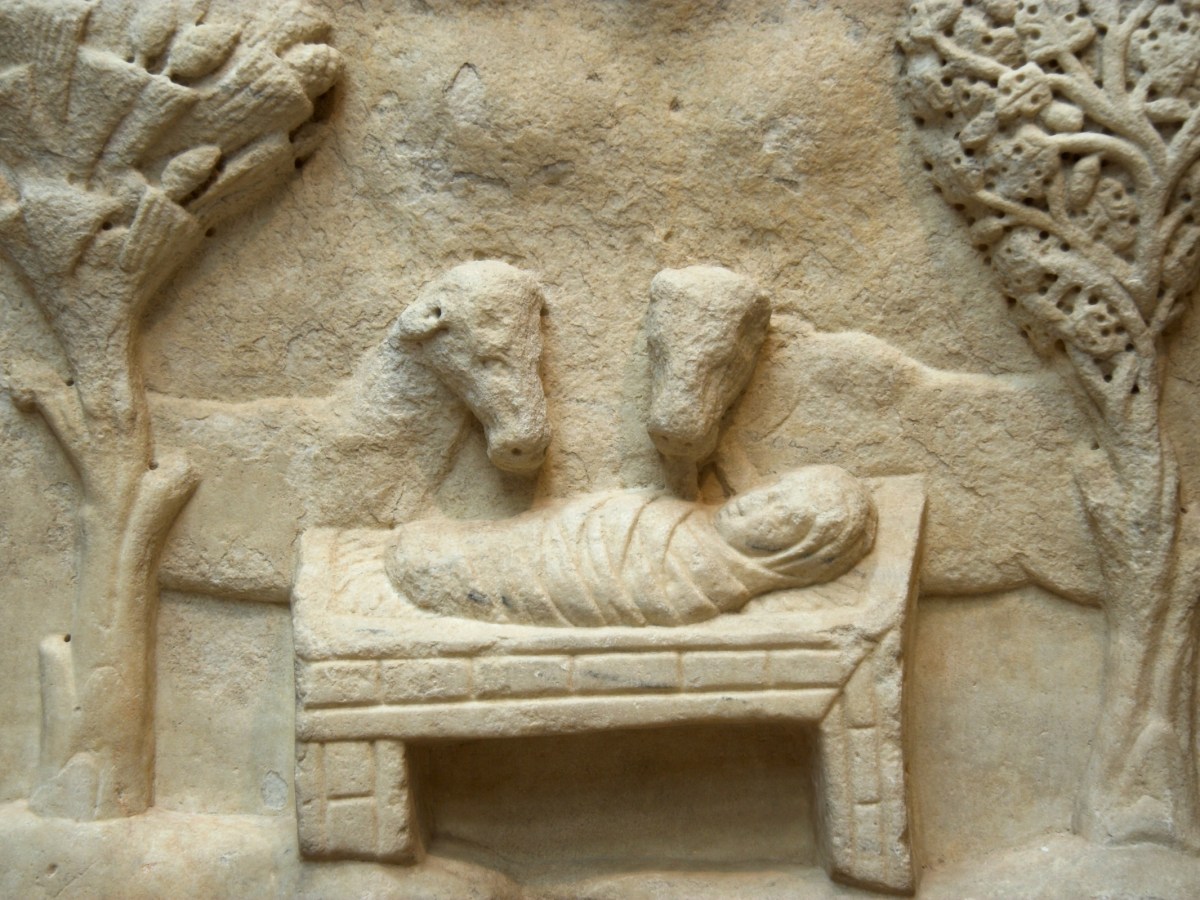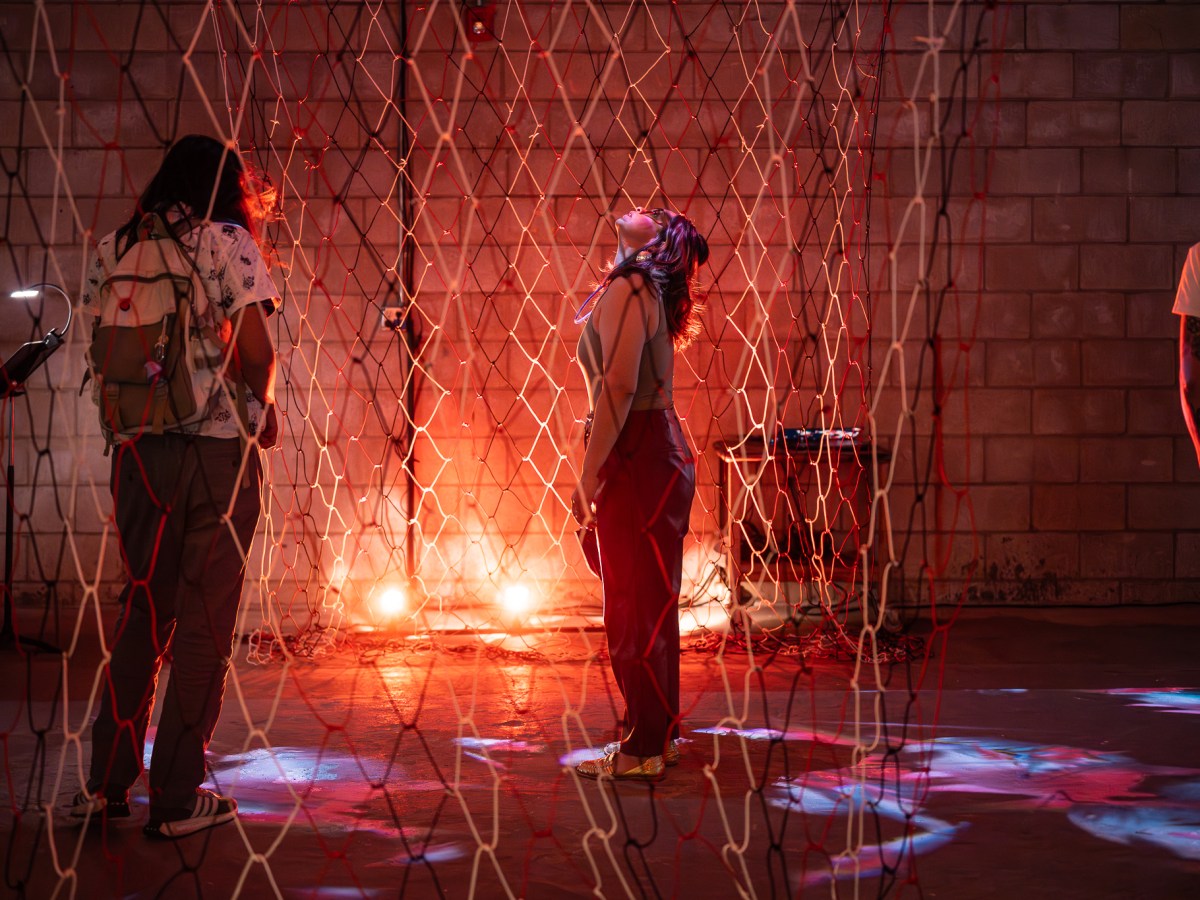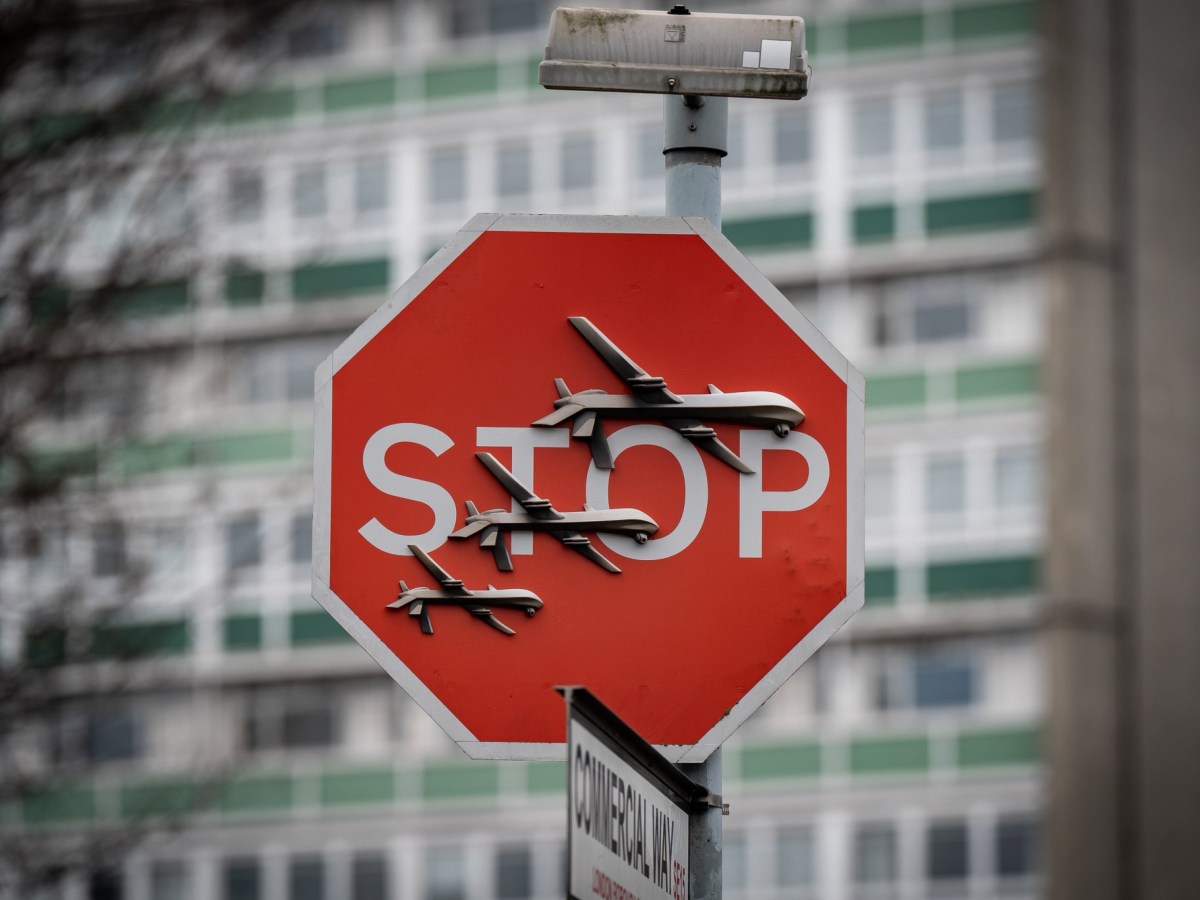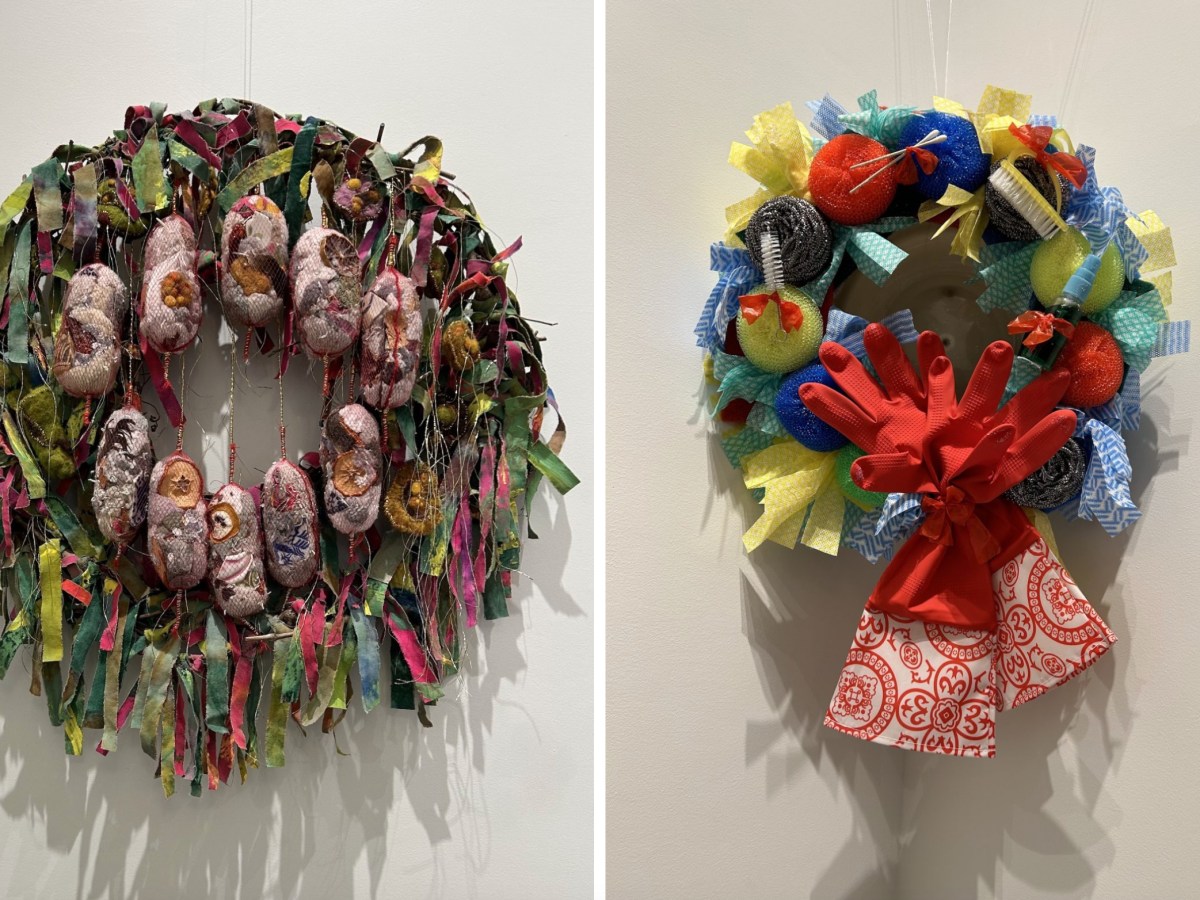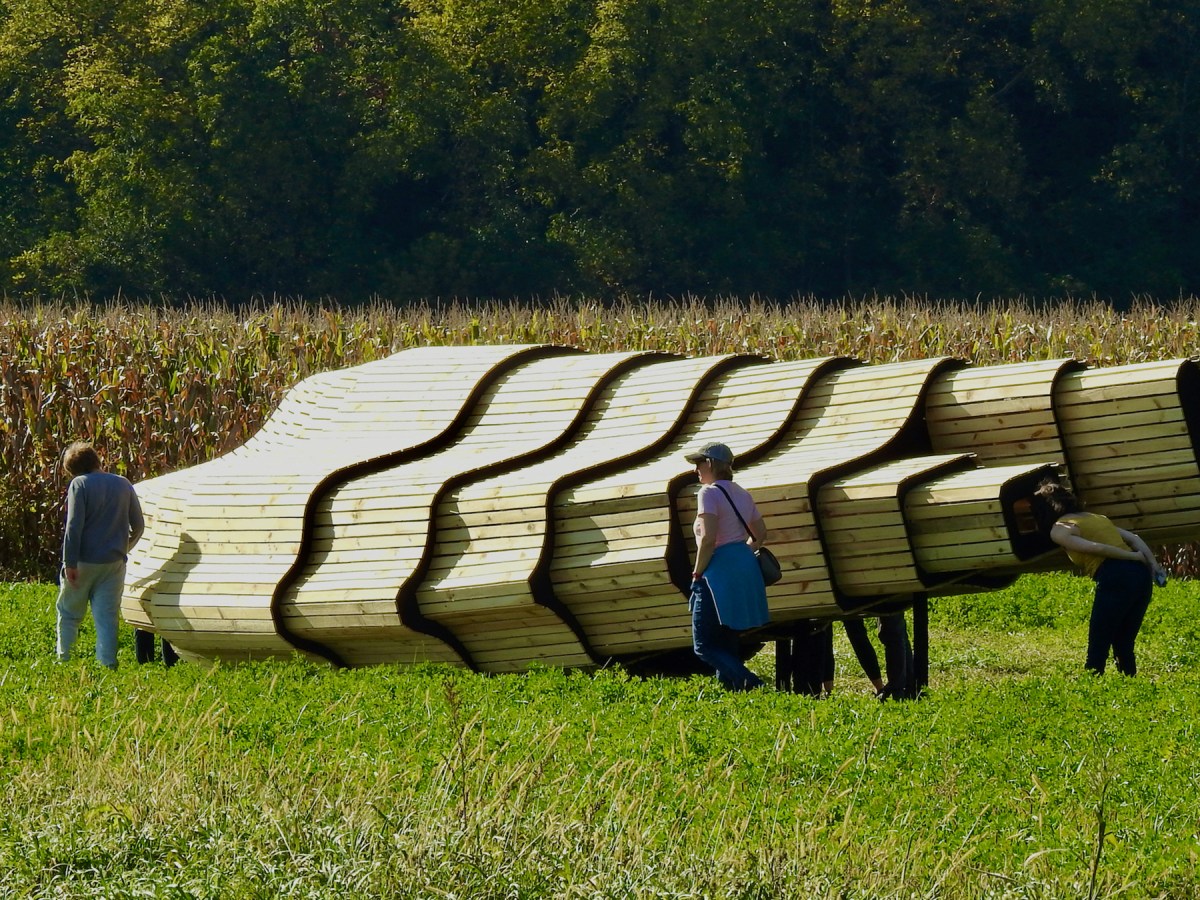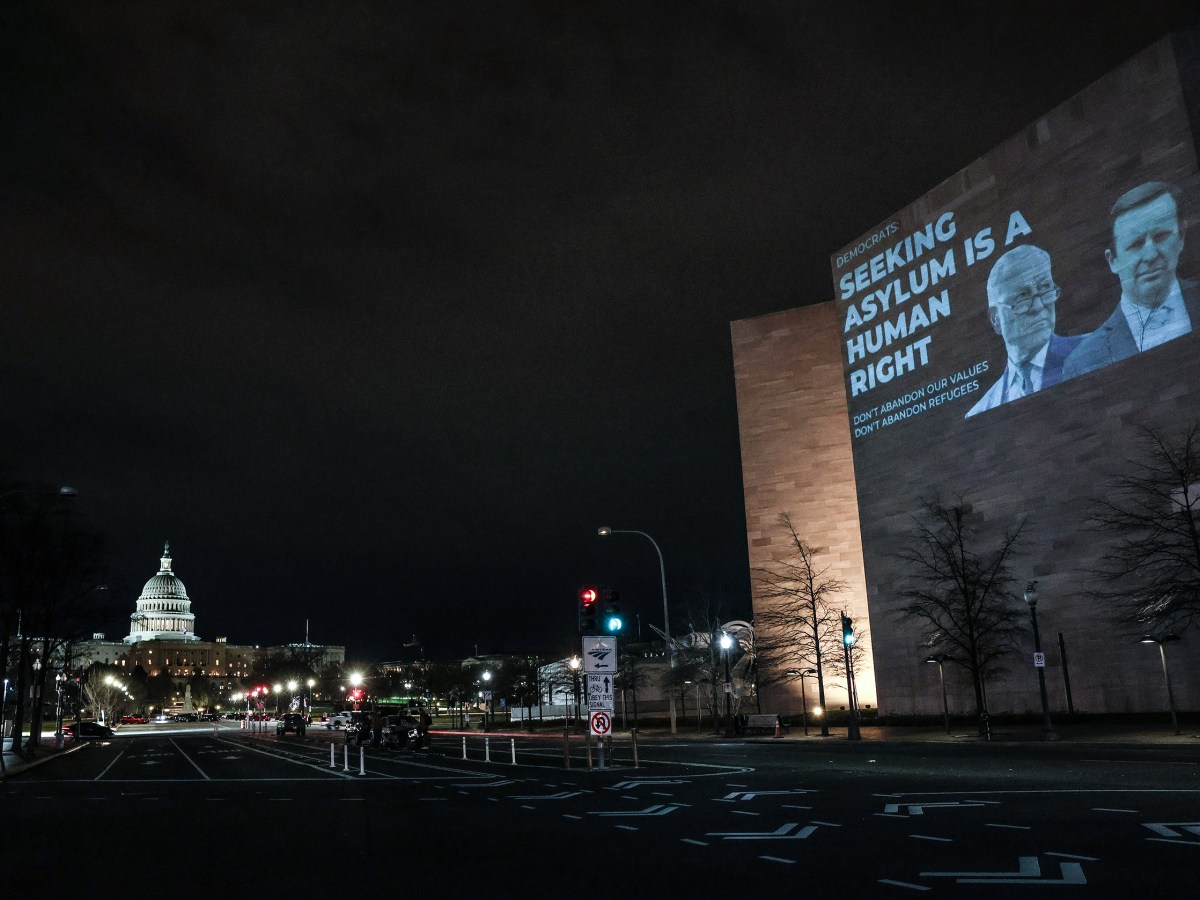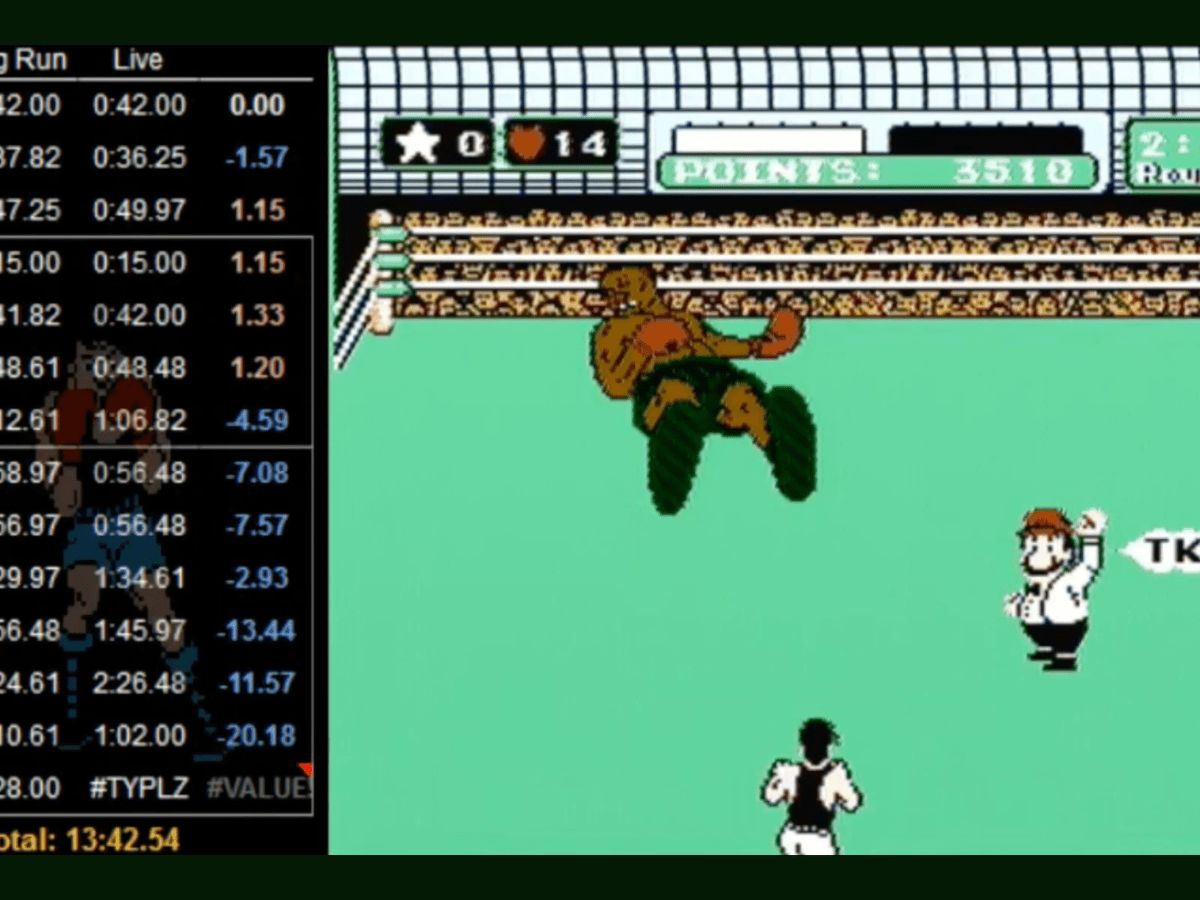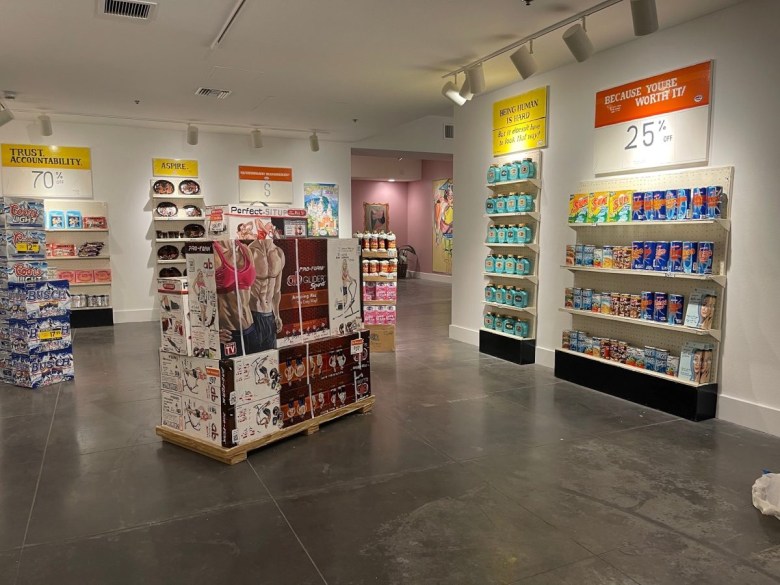
LAGUNA BEACH — Visitors to Your Place in the Multiverse, a survey of Encinitas-based artist Jean Lowe’s work from the last 20 years, have the distinct experience of entering the exhibition through the gift shop. “Discount Barn,” an installation first executed in 2011–12, transforms the Laguna Art Museum’s subterranean level into a literal bargain basement stocked with handmade merchandise rendered in enamel, casein, cardboard, papier- and cloth-mâché. These unique spin-offs of their mass-produced cousins are for sale and may be purchased directly out of the exhibition from the cashier on duty, for the prices advertised in the accompanying newsprint circular. Lowe’s “Discount Barn” features bold signage and carefully curated retail displays offering products like “Willendorf Body Sculpt” and “Gently Used Antiquities” (don’t worry, they’re “AAM Approved”). A large yellow sign hanging over a display of family-sized “Tear Stain Remover” reads, “Being Human is Hard, but it Doesn’t Have to Look that Way!”
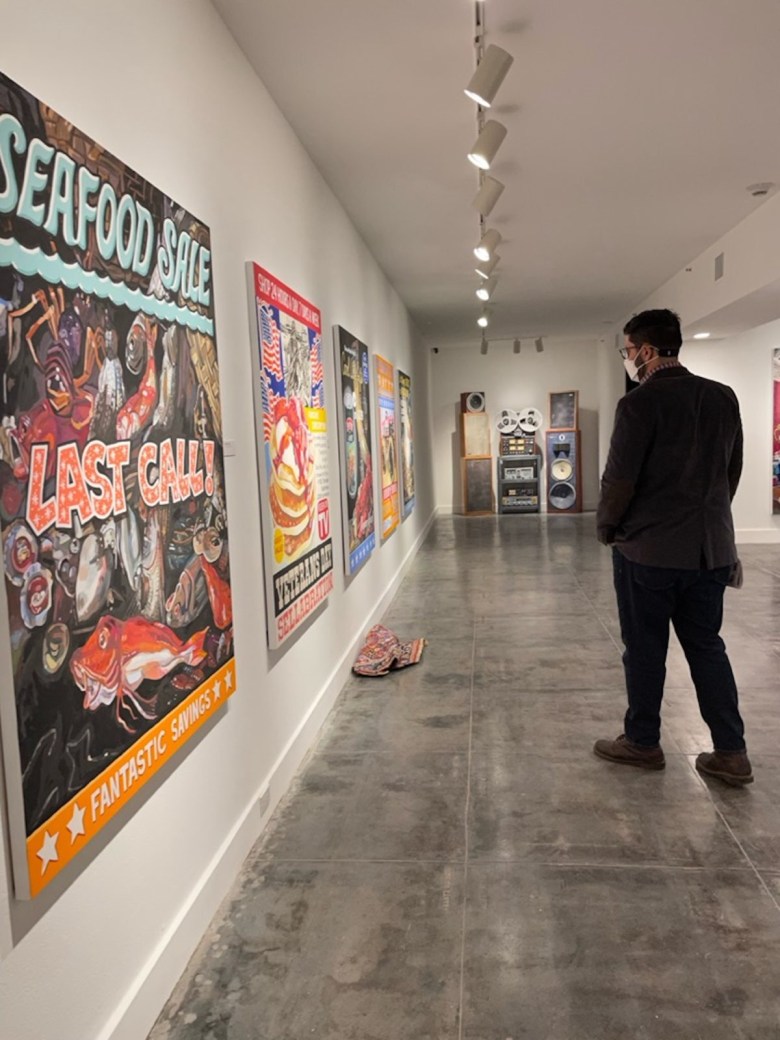
Browsing the shelves of the “Discount Barn” serves as the introductory act to the performative experience of Lowe’s Multiverse. Moving through the exhibition is not unlike walking onto a set; in Lowe’s Multiverse, we are both actor and audience, parodying our most banal behaviors by consuming images of our own consumption. For more than 35 years, Lowe has combined her acerbic wit with sumptuous visuals to create images, objects, and environments that simultaneously indict and delight. She blends the languages of consumerism and cultural cachet to shed light on humanity’s relentless desire to acquire, achieve, and improve — at all costs.
Lowe began making facsimiles of furniture as a graduate student at UC San Diego in the late 1980s and created her first papier-mâché salon for her 1993 exhibition Real Nature: Accomplishments of Man at Los Angeles Contemporary Exhibitions (LACE). When we spoke, Lowe described how elements of the domestic realm, such as furniture, wallpaper, and decorative objects, provided an appropriate structure for her critiques — one that was both familiar and intimately tied to the behaviors she sought to address. The success of these early projects led to her inclusion in the 1994 exhibition Bad Girls West at UCLA’s Wight Gallery, the concurrent West Coast iteration of the seminal New Museum project that highlighted humor and transgression in a new generation of feminist art. Lowe has since developed a mode of institutional critique that spares no institution, with this exhibition highlighting her sustained investigation into the assignment of value in American cultural life — from the dollar store to the auction house.
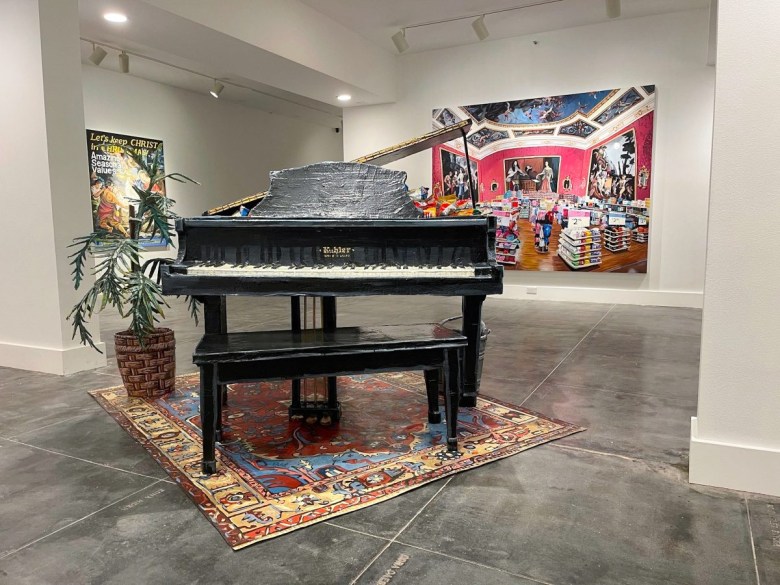
Like “Discount Barn,” the installation “Baby Grand” (2006) points to the “absurdity of art’s social signifying and detachment from the everyday,” Lowe explained to me. Here, she has fabricated a cloth-mâché piano that sits atop a replica Persian carpet, flanked on one side by a potted houseplant. In addition to its function as a signifier of bourgeois cultural aspiration, Lowe’s piano is also a working cooler — packed with chips and soda to be taken and enjoyed by gallery-goers at their leisure. This intentional destabilization of the high-low binary is reiterated in the paintings that surround “Baby Grand.” One large example, “Boy Girl” (2018) from the series Love for Sale, reimagines the interior of a big box store within the opulently adorned 18th-century antechamber of the Nymphenburg Palace in Munich. On a nearby wall, the five-painting series Last Call! (2017-2018) borrows the structure of unsolicited mailers, which advertise everything from discounted medical procedures to blow-out produce sales (they are already so absurd, said Lowe, that they were difficult to satirize). By incorporating the visual language of Dutch Golden Age still-life paintings into an ad for canned lobster, or appeals to patriotism to sell pancake subscriptions, Lowe elucidates the many ways that our value systems are often manipulated to capitalist ends.
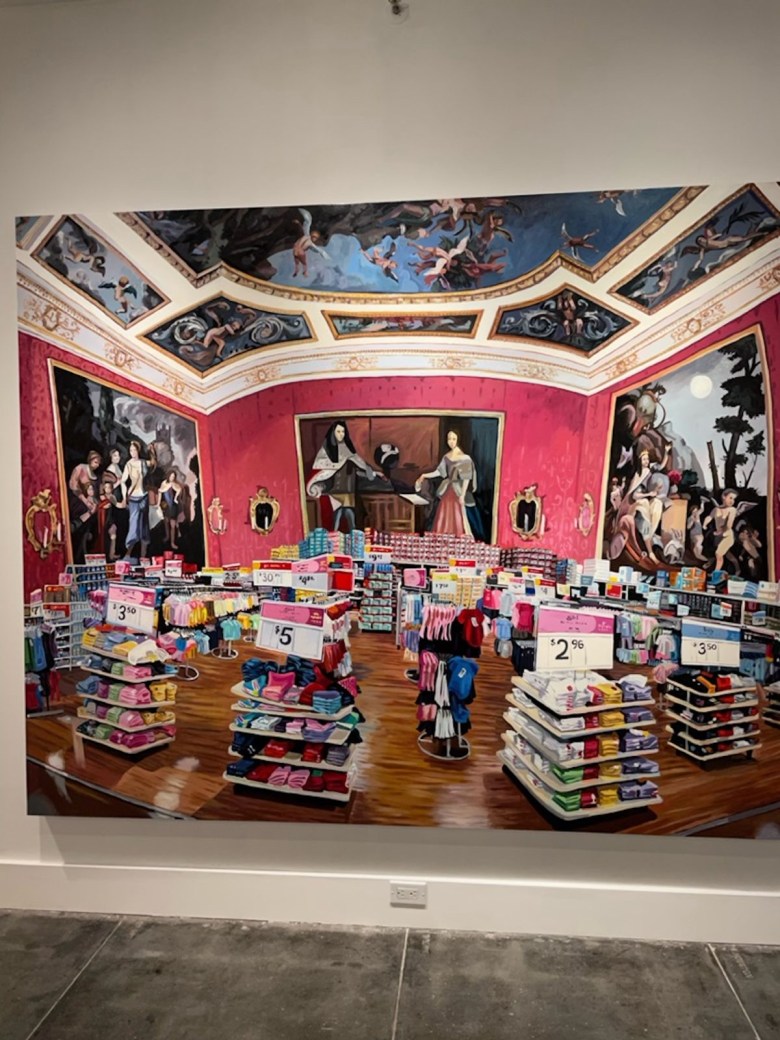
Perhaps nowhere is Lowe’s deft wielding of wit to seduce and subvert as concisely evinced as in her various book works. Since the early 1990s, Lowe has fabricated entire libraries of papier-mâché books with cover art that combines text and image into illustrated one-liners. She has exhibited these books within installations, as individual objects, and as is the case in this exhibition, as retail displays printed on metal. The titles featured among Lowe’s “Bookshelf Prints” (2013) range from hilarious to disturbing, including the relatively innocuous “Ignorance Means Never Having to Say You’re Sorry” (in the Motivation and Self-Help section) as well as the deeply unsettlingly nonfiction title, “Contemporary Genocide: In Perspective.”
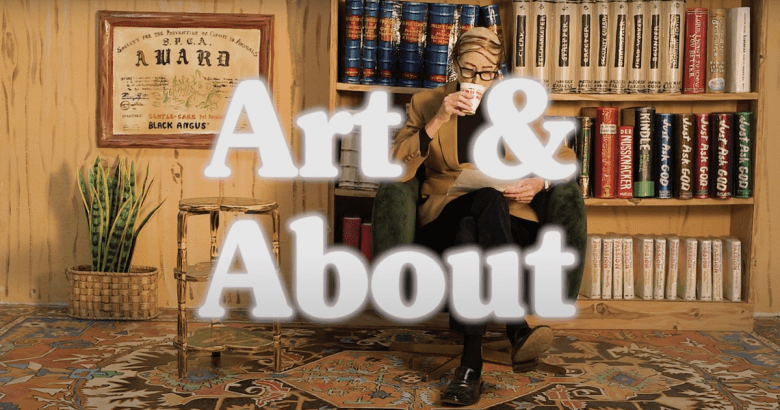
The many registers of cultural critique and creativity present in Lowe’s work converge in the video project “Art and About with Bill Mackelry“(2019-20), a collaboration with artist Omar Lopex. Here Lowe enters the picture, performing as Mackelry, who she describes as a “casually sexist and not overly bright talk show host.” Mackelry hosts his show from his office, decked out with furniture, a tome-laden bookshelf, Persian carpet, houseplant, and backdrop all fabricated by Lowe. The short video provides a retrospective look at some of Lowe’s early work, alternating between Lowe’s descriptive narration and Mackelry’s visible disinterest. The thoroughly meta experience of watching Lowe assess her own work from within it, as both herself and Mackelry, in the context of her own museum exhibition, serves as a fitting closing act to our journey through Lowe’s Multiverse. It’s as if Lowe’s presence relieves us of our duty as performers and returns us to our reality as unrelenting consumers of all things.
Your Place in the Multiverse: Jean Lowe continues at Laguna Art Museum (307 Cliff Drive, Laguna Beach) through September 18. The exhibition was organized by the Nora Eccles Harrison Museum of Art, Utah State University.

